KNAW
De Koninklijke Nederlandse Akademie van Wetenschappen (KNAW) is van oudsher een genootschap van excellente Nederlandse wetenschappers. Leden worden gekozen op basis van hoogwaardige wetenschappelijke prestaties. Een lidmaatschap is voor het leven. De KNAW kiest jaarlijks maximaal 16 nieuwe leden. Lidmaatschap is een groot eerbetoon voor een wetenschappelijke carrière.
KNAW leden
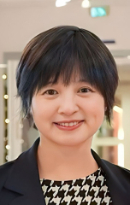
Sinds 2025
Jingyuan Fu is hoogleraar systeemgeneeskunde bij het UMCG. Ze heeft baanbrekend onderzoek uitgevoerd waarin grootschalige data over menselijke genen, het darmmicrobioom, en omgevings- en leefstijlfactoren worden gecombineerd om individuele verschillen in gezondheid en ziekte te begrijpen. Haar onderzoek richt zich op interacties tussen de mens en microben bij het reguleren van de menselijke stofwisseling, immuniteit, en de effectiviteit en veiligheid van medicijnen. Om de vertaalslag naar de praktijk te maken ontwikkelt ze ook geavanceerde lever-op-een-chipmodellen, die gekoppeld kunnen worden aan darm-op-een-chip en bacteriële culturen, om de darm-lever dynamiek in vitro simuleert. Als medeoprichter van de Groningen Microbiome Hub, een interdisciplinair platform binnen het UMCG, versnelt ze bovendien de omschakeling van wetenschappelijke kennis naar de praktijk.
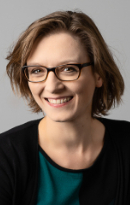
Lisa Herzog is hoogleraar politieke filosofie en economie. In haar onderzoek richt ze zich op hoe kennis in onze samenleving wordt verdeeld en welke invloed dat heeft op de democratie. Daarnaast onderzoekt ze hoe morele en democratische waarden een sterkere plek kunnen krijgen binnen de economie, en hoe organisaties menselijker en rechtvaardiger ingericht kunnen worden. Als decaan van de faculteit Wijsbegeerte zet ze zich actief in voor een democratische bestuurscultuur. Sinds haar lidmaatschap in de Global Young Academy draagt ze ook in verschillende contexten bij aan mentorschap voor gevluchte wetenschappers en de verbetering van Global Science Equity.
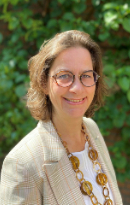
Helga de Valk is hoogleraar migratie en levensloop. Daarnaast is ze directeur van het NIDI (Nederlands Interdisciplinair Demografisch Instituut). Levens van mensen doorlopen verschillende fases waarin allerlei gebeurtenissen plaatsvinden. Vaak hebben ervaringen in de jeugd en jongvolwassenheid ook nog gevolgen voor kansen in het latere leven. Helga de Valk onderzoekt levenslopen van jongeren en volwassenen met speciale aandacht voor de rol van migratie daarin. Ze kijkt daarbij zowel naar het individuele perspectief als de bredere maatschappelijke context in een internationaal vergelijkend perspectief. Met haar expertise adviseert ze Europese en Nederlandse beleidsmakers over cruciale fases in de levensloop, de rol van migratie en bevolkingsveranderingen in den brede.
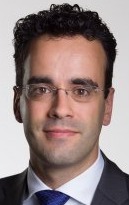
Sinds 2024
Mladen Popovic
Mladen Popovic is hoogleraar Oude Testament en Antiek Jodendom en heeft een wereldwijde reputatie als kenner van de Dode Zeerollen, ontdekt in een grotten in de woestijn bij Qumran ten noordwesten van de Dode Zee. Ze bevatten onder andere bijbelteksten. Popovic combineert in samenwerking met andere wetenschappers handschriftanalyse, kunstmatige intelligentie en natuurwetenschappelijke methoden zoals koolstof-14-datering om handschriften te dateren met tot dan toe onmogelijke precisie, waarbij zelfs afzonderlijke schrijvers onderscheiden kunnen worden. Zo weet hij de voor-Christelijke, Joodse gemeenschap van Qumran te plaatsen binnen de schrijf- en leesculturen en de denkwerelden van het Hellenistische en Romeinse Nabije Oosten. Zijn aanpak heeft geleid tot een paradigmaverschuiving in de handschriftkunde, bijbelwetenschap en ook de geschiedenis van het Jodendom, en kan ook gebruikt kan worden voor andere historische vakgebieden
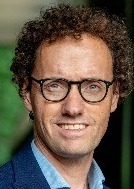
René Veenstra s hoogleraar sociologie en de sociale ontwikkeling en verricht baanbrekend onderzoek naar prosociaal en antisociaal gedrag, met een focus op de rol van sociale netwerken en normen. Hij ontwikkelde een vernieuwend perspectief op pesten waarbij pesten niet langer wordt gezien als een geïsoleerd probleem van individuen, maar als een dynamiek binnen sociale netwerken waarin iedereen een rol kan spelen. Ook toonde hij aan dat pesters niet eenvoudigweg onaangepaste kinderen zijn, maar veelal strategisch streven naar status en affectie. Deze verschuiving in perspectief heeft geleid tot een nieuwe benadering van pestpreventie, waarbij de focus ligt op het veranderen van de norm in de sociale omgeving in plaats van het straffen van pesters. Veenstra was betrokken bij de implementatie en evaluatie van het effectieve anti-pestprogramma KiVa in Nederland en speelde een essentiële rol in de opzet van langlopende studies naar de sociale ontwikkeling van jongeren. Met veel enthousiasme deelt hij zijn kennis over sociale netwerken en mechanismen van pesten met leraren, ouders, kinderen en een breder publiek. Zijn onderzoek draagt aanzienlijk bij aan het bevorderen van positieve sociale interacties en heeft een grote maatschappelijke impact.
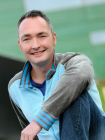
Sinds 2023
Siewert-Jan Marrink heeft internationale faam verworven met zijn moleculaire simulaties van biomembranen, vooral het MARTINI-computermodel, waarmee het gedrag en de dynamiek van complexe biologische systemen nauwkeurig voorspeld kan worden. Marrink zag in dat je de moleculaire structuur van biomoleculen genoeg moet versimpelen om computerberekeningen van grote verzamelingen van die moleculen mogelijk te maken, maar ook weer niet zo sterk dat belangrijke chemische eigenschappen van die biomoleculen verloren gaan. Het werk van Marrink heeft de membraanbiologie ingrijpend veranderd, en hijzelf deed een aantal baanbrekende ontdekkingen over biologische membranen en de eiwitcomplexen die daarin ingebed zijn. De MARTINI-software wordt ook buiten dit veld, en zelfs buiten de biologie, wereldwijd gebruikt.
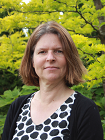
Judith Rosmalen is een drijvende kracht in het internationale biopsychosociale onderzoek naar gezondheid. Ze richt zich op aanhoudende lichamelijke klachten, veroorzaakt door een bekend ziektebeeld of met onbekende oorzaak. Haar onderzoek maakt gebruik van langdurige bevolkingsstudies zoals Lifelines en TRAILS, die ze vaak zelf hielp opzetten. Deze studies brengen een unieke combinatie in kaart van biomedische en psychosociale gegevens gerelateerd aan gezondheid, en blijken nu van grote waarde, bijvoorbeeld in het onderzoek naar post-COVID.

Sinds 2022
Maria Antonietta Loi heeft twee wereldrecords op haar naam staan: dat van de best presterende zonnecel, gemaakt met quantumdots en gemaakt met ‘Sn gebaseerde perovskieten’ – een goedkoop basismateriaal voor efficiente zonnepanelen. Loi beschikt over de perfecte combinatie van creativiteit, visie en transdisciplinaire kennis die nodig is om de zonnecel van de toekomst te maken. Door fysische principes bloot te leggen en materialen tot op de nanoschaal te manipuleren vertaalt ze fundamentele fysica in concepten die bruikbaar zijn voor de energietransitie. Haar werk heeft patenten, startups en een nauwe samenwerking met de industrie opgeleverd. Loi is daarnaast een gepassioneerd en kundig opleider. Haar promovendi ronden hun promotie steevast binnen de nominale vier jaar af, haar postdocs vinden uitstekende posities.
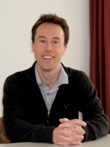
Dirk Slotboom is gespecialiseerd in het verklaren en manipuleren van membraantransport in bacteriën en zoogdiercellen. Hij vestigde zijn reputatie door de ontdekking van een nieuw verplaatsingsmechanisme, waarbij één eiwitcomponent de membraan vervormt, waardoor een tweede eiwit in de membraan kan kantelen, om zo een stof van buiten de cel naar binnen te halen. In zijn werk combineert hij biochemische, biofysische en microbiologische methoden, maar Slotbooms interesse reikt ver buiten zijn eigen vakgebied. Zo probeert hij samen met synthetisch chemici stoffen te ontwikkelen die membraantransport kunnen remmen, en uiteindelijk mogelijk als antibioticum kunnen dienen. Hij is een voortreffelijk, meerdere malen bekroond docent en één van de architecten van een geheel nieuw multidisciplinair curriculum voor de opleiding Life Science and Technology aan de RUG. Het programma voorziet in een grote behoefte bij zowel studenten als werkgevers.
Overige KNAW-leden met een aanstelling bij de RUG
|
Prof. dr. G.J. (Gerard J.) van den Berg (sinds 2021)
|
Prof. dr. A.J.M. Driessen (sinds 2009)
|
|
Prof. dr. L.C. (Rineke) Verbrugge (sinds 2021)
|
Prof. dr. T. Piersma (sinds 2009)
|
|
Prof. dr. S. (Sijbren) Otto (sinds 2020)
|
Prof. dr. B. Poolman (sinds 2009)
|
|
Prof. dr. Linda Steg (sinds 2017)
|
Prof. dr. ir. B.J. van Wees (sinds 2009)
|
|
Prof. dr. Clara Mulder (sinds 2017)
|
Prof. dr. H.W. Broer (sinds 2008)
|
|
Prof. dr. Amina Helmi (sinds 2017)
|
Prof. dr. B.L. Feringa (sinds 2006)
|
|
Prof. dr. André Aleman (sinds 2017)
|
Prof. dr. M.A. Harder (sinds 2005)
|
|
Prof. dr. P. Hendriks (sinds 2016)
|
Prof. dr. M. Joëls (sinds 2002)
|
|
Prof. dr. P. Kleingeld (sinds 2015)
|
Prof. dr. J.T.M. de Hosson (sinds 2001)
|
|
Prof. dr. T.N. Wijmenga (sinds 2012)
|
Prof. dr. ir. E. van der Giessen (sinds 1999)
|
|
Prof. dr. L.W. Nauta (sinds 2011)
|
Prof. dr. S.M. Lindenberg (sinds 1994)
|
|
Prof. dr. C.W.A.M. Aarts (sinds 2011)
|
Prof. dr. T.S. van Albada (sinds 1984)
|
|
Prof. dr. P.C. Westerman (sinds 2010)
|
KNAW Akademiepenning
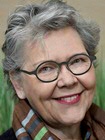
De Akademie reikt eens in de twee jaar de KNAW Akademiepenning uit aan een persoon die zich bijzonder heeft ingezet voor de bloei van de Nederlandse wetenschap. In 2019 werd de Akademiepenning toegekend aan Trudy Dehue, wetenschapssocioloog, publicist en emeritus hoogleraar van de Rijksuniversiteit Groningen de prijs. Ze krijgt de prijs omdat ze het maatschappelijk debat over belangrijke kwesties in de wetenschap in gang heeft gezet.
Lees meer over Trudy Dehue
KNAW Akademiehoogleraren
De KNAW kende tot 2016 jaarlijks twee prijzen van elk één miljoen euro toe aan de meest excellente onderzoeker in de sociale of geesteswetenschappen en aan de meest excellente onderzoeker in de natuur-, technische of levenswetenschappen. De KNAW wilde met de Akademiehoogleraar-beurzen excellente onderzoekers belonen die in hun carrière hebben aangetoond dat zij tot de absolute top van hun vakgebied behoren: een lifetime achievement award.
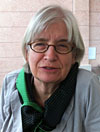
2010: Prof. dr. Elisabeth de Vries
Elisabeth de Vries (Medische Oncologie) is benoemd tot Akademiehoogleraar vanwege het baanbrekende onderzoek dat zij verricht binnen een zeer breed spectrum van de medische oncologie. Zij is een vooraanstaand internationaal onderzoeker en ontwikkelt en implementeert nieuwe technieken in zowel wetenschappelijk onderzoek als patiëntenzorg.
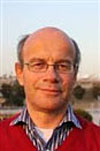
2010: Prof. dr. Eric Bergshoeff
Eric Bergshoeff (Theoretische Natuurkunde) heeft belangrijke bijdragen geleverd aan wetenschappelijke doorbraken op het gebied van de snaartheorie en membranen. Hij is een internationaal erkend wetenschapper, wiens ideeën het vakgebied sterk hebben ontwikkeld en beïnvloed. Gedurende zijn carrière is Bergshoeff telkens vernieuwend geweest en zijn ontdekking van de brane theory is van blijvende invloed op de theoretische en mathematische natuurkunde.
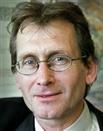
2008: Prof. dr. Ben Feringa
Ben Feringa is benoemd vanwege zijn baanbrekende werk op scheikundig gebied. Hij verwierf wereldfaam met de synthese van organische moleculen. Feringa slaagde er als eerste in moleculaire motoren te synthetiseren die onder invloed van licht blijven draaien. Wereldwijd beschouwen zijn vakgenoten dit als een van de hoogtepunten van de moderne scheikunde. Veel van de postdoc-onderzoekers die hij uit de hele wereld heeft aangetrokken, bekleden inmiddels hoge functies aan gerenommeerde buitenlandse universiteiten.
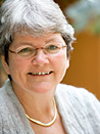
2007: Prof. dr. Dirkje Postma
Dirkje Postma, hoogleraar Pathofysiologie van de ademhaling, is benoemd tot Akademiehoogleraar vanwege haar bijdragen op het gebied van luchtwegaandoeningen. Postma heeft zich beziggehouden met astma, chronische obstructieve longziekten (COPD) en allergieën. Als gevolg van haar vroege werk werd het gebruik van steroïden bij astmapatiënten een standaardbehandeling waar miljoenen mensen in de hele wereld baat bij hebben. Zowel haar klinische werk als haar fundamentele onderzoek is van een uitzonderlijk niveau.
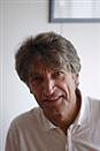
2005: Prof. dr. Bram Buunk
Bram Buunk, hoogleraar Sociale psychologie, is benoemd tot Akademiehoogleraar vanwege zijn invloedrijke theoretische bijdragen aan de sociale vergelijkingstheorie, zijn empirisch onderzoek naar sociale vergelijking in eerder onontgonnen domeinen, en zijn evolutionair-psychologische benadering van sociaal gedrag. Met zijn werk levert hij belangrijke bijdragen aan de oplossing van problemen op het gebied van werkgerelateerde stress en burn-out, geestelijke gezondheid en levensbedreigende ziekten. Zijn onderzoek heeft tevens belangrijke conclusies opgeleverd op het terrein van jaloezie en wederkerigheid in interpersoonlijke relaties.
